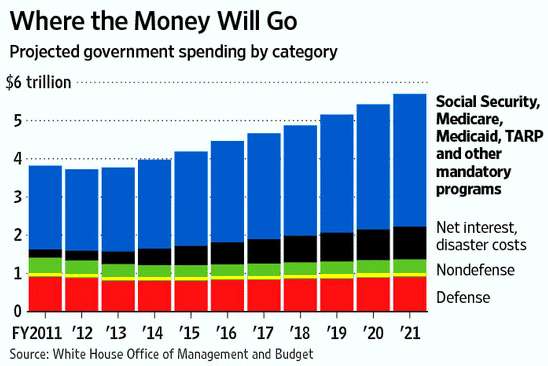The subtitle is “the snake that threatens to choke the economy.” The post wound down with this chestnut, which was somewhat new to me:
Wasn’t income inequality one of the key causes of the Great Depression?
So I took the time to research this casually, which I’ll freely admit means next to nothing…I submitted a Google search and skimmed through what came up. Everything was conjecture, in the sense that everything about economic cause-and-effect is conjecture. But this was particularly flimsy. No evidence that anyone, anywhere, did some actual digging except for the hardcore progressive cases with an agenda to push, like Sen. Chuck Schumer and Congresswoman Carolyn Maloney for example. And Ezra Klein seems to think there’s something to this, if his name is still credible with you.
So I got sucked in again. I wanted to see just how hard this evidence would get. The answer is not very. And, predictably, although it was the other fellow who posited something, it soon became my job to prove everything. That’s one of the fundamental definitions of how Darrellogic works.
One of the points I made was that a low Gini coefficient does not seem to be helpful to a nation’s economy, in fact, it seems the more productive nations overall have a higher Gini. These international plot-jobs on income distribution within the nations seem to more or less agree with each other, and the “equal” countries overall contribute less to world commerce than the “unequal” ones. Now this is all very casual, not scientific in any way, we’re not looking up national exports divided by population & cross referencing or anything like that…more a test of, “can I think of anything Canada produces that I want or need to buy, or that is used to assemble/produce/grow something I want or need to buy?” I also linked Professor Laffer’s editorial, or at least my own post that linked it anyway…
Frankly, I think this was all way above-and-beyond the call. If the other side is speculating about something it’s up to the other side to prove it. Ed Darrell has a track record of “winning” these things, in his own mind, the way most liberals “win” which is by making the other side prove everything while he doesn’t even bother to substantiate. That’s why I’ve added “Darrellogic” to the dictionary. In Darrellogic, there are different thresholds of proof required to prove different things; whatever tenet fails to produce the proof commensurate with its threshold, is ipso facto falsified; and these different thresholds are decided, from the best I can tell, by nothing more complicated than whether Ed Darrell happens to like them.
But we’re still having our nice little chat here. Until, because of some gremlin residing on his server or WordPress installation, my comment is no longer being accepted. Hmmm…maybe there’s an income inequality snake choking off the comments on Ed’s blog.
So my witty rejoinder will have to go here instead.
To prove the Laffer Curve, you would have to create two universes going through two time lines, with all other economic factors meticulously replicated between the two time lines. This is why the discipline of economics exists in the first place; we can’t do that kind of experimentation. The same applies to your position “I could concede to you the validity of the Laffer curve, but point out that we’re far on the left side, where increasing tax rates increases government income in greater proportion…” What can you offer to prove this might I ask? Can’t I say that’s refuted the first time we use simple multiplication to predict how much additional revenue a tax increase will create — and then it falls short?
No of course I can’t. In the same sense you can’t really produce economic data to “prove” or refute anything. In the field of economics, every single experiment in the real world is conducted in a test environment that is as polluted and dirty as it can possibly be. We don’t know Reagan’s tax cuts helped the budget picture because spending went up, we don’t know Clinton stimulated the economy because those dot-com technologies were taking off, we don’t know the real impact of the Bush tax cuts because of 9/11. There’s always a contagion somewhere, and since the test bed doesn’t have a perimeter, the primary contagion is usually an enormous one.
But in fact, on a macro level the Laffer Curve is easily provable and you don’t need to jot down a single paragraph or produce a single table, you can rely entirely on the nature of human incentive. If tax rates are zero, you have zero revenue — that’s simple math; if tax rates are 1, so that the minute you make any money you’re obliged to hand it in, the government’s revenue would be negligible at best. Somewhere in between, there is revenue at a level greater than what you find on the extreme ends (every time a tax is levied and revenue comes in, there’s your proof for the last of these three). Now, if those three offerings are accepted then the curve is “proven.” So which one of the three are you going to debate? If you think it isn’t your job to say which, but insist the debate still must rage onward, then it’s time for the universe-splitting experiment. So, yes, it is laughable and that’s probably why you didn’t see the paper. Laffer was probably laughing right back at you, and he’d have been right to.
But you still haven’t explained why the Gini coefficient is irrelevant to a discussion about “income inequality: the snake that threatens to choke the economy.” What exactly is the meaningful difference between the discussion you are seeking to have here, and what the Gini is intended to measure?
To me, this stuff doesn’t even get into the conservative/liberal aspect of it; it’s much simpler than that. If there’s a requirement that your feet can never be more than a few inches apart from each other, you can’t walk. This progressive vision of super-duper-sameness ultimately has to rely on: We’re going to pass some new tax policies that ream you right up the butt when you produce, and you’re just going to keep on producing.
I personally know this is not true. In my early twenties, my distaste for the process of exchanging technical information with people became so palpable and so intense that I made a conscious decision to type for a living just so people would leave me alone. I made minimum wage and I was content to make minimum wage. That didn’t last long; financial obligations crept up, and eventually I decided the proper outlook would be to save first and anticipate whatever might go wrong later. I grew up.
That’s what work is. We put up with things that might occasionally be a pain in the ass, to make money. If at the end of it all we don’t get to keep the money, we don’t do it. Ask a waitress next time you go to a diner.
But of course “tax the rich” is not about taxing waitresses. It’s about people who make a real do-I-really-want-to-do-this decision every single time they go to work at their “jobs”…who, if they decide to go ahead, typically spend money as a first step. So their question is a little bit different: Do I want to lay out this cash. And, unlike the waitress, they can say no and not suffer too much as a result. Not suffer at all, really.
People are not automatons. They are sentient, rational, intelligent beings who observe ramifications, anticipate rewards & consequences, and make decisions about what to do that are predicated on these things. Their behavior changes with costs & benefits.
It’s just a dumb policy. That’s why those who defend it keep insisting the other side is the one that has to prove everything…so that, before it’s done, you’re on the hot seat “proving” things so self-evidently true as things like, People Like Money. And you’ll probably fail to achieve the threshold even “proving” that much. The tax-the-rich folks can’t make their plan look good by discussing it under any other protocol.














 No, seriously it takes a very special woman to thaw out a heart frozen that solid. But this one went and did it, so we’re planning for something around Christmas. It’s all driven by when the boy can be here, and that’s the long pole in the tent as they say. He goes to school while living under the roof of his mother, some 400 miles from here. So we’ll do the dirty deed on his break. If Nevada turns out to be frozen up so badly that boy-extraction is impossible, then it could be put off ’til the spring…but that’s not likely to happen. Christmas it is.
No, seriously it takes a very special woman to thaw out a heart frozen that solid. But this one went and did it, so we’re planning for something around Christmas. It’s all driven by when the boy can be here, and that’s the long pole in the tent as they say. He goes to school while living under the roof of his mother, some 400 miles from here. So we’ll do the dirty deed on his break. If Nevada turns out to be frozen up so badly that boy-extraction is impossible, then it could be put off ’til the spring…but that’s not likely to happen. Christmas it is.


 Back in ’83, you’ll recall, as [brother] was closing in on the final days before his first marriage, it was all-drama-all-the-time, and he was chasing off in an endless pursuit of wise advice that he wasn’t really ready to absorb. For reasons I cannot recall, I was “in tow” at one of these unproductive match-ups, in front of Dr. Murray; [brother] asked him if he had any advice. [Sister-in-law] looked down at the ground, and beamed, which was customary for her. Dr. Murray rambled onward about some obscure point, and [brother] felt the necessity of finishing his sentence for him “it’ll all work out?”
Back in ’83, you’ll recall, as [brother] was closing in on the final days before his first marriage, it was all-drama-all-the-time, and he was chasing off in an endless pursuit of wise advice that he wasn’t really ready to absorb. For reasons I cannot recall, I was “in tow” at one of these unproductive match-ups, in front of Dr. Murray; [brother] asked him if he had any advice. [Sister-in-law] looked down at the ground, and beamed, which was customary for her. Dr. Murray rambled onward about some obscure point, and [brother] felt the necessity of finishing his sentence for him “it’ll all work out?”